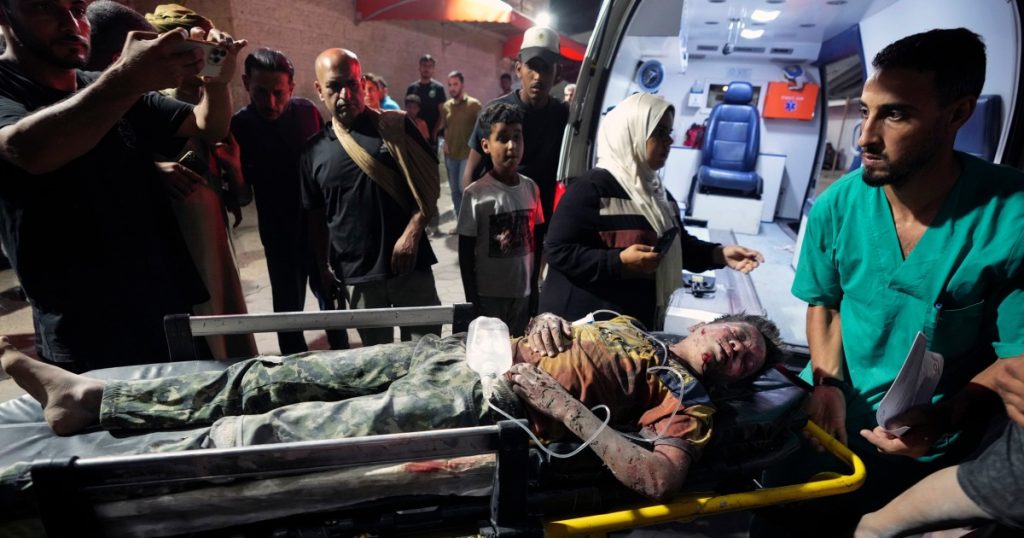Nearly three dozen people were killed in Rafah in southern Gaza in an Israeli airstrike that targeted an area where internally displaced civilians were reportedly sheltering in tents. The majority of those killed were women and children, with the Gaza Health Ministry reporting at least 35 deaths. The Palestine Red Crescent Society warned that the number of casualties may rise as many people were trapped in flames following the attack. Médecins Sans Frontières provided medical assistance to the injured at a trauma stabilization point and called for an immediate ceasefire in Gaza to prevent further tragedies.
Video footage shared on social media showed a tent area engulfed in flames as screaming Palestinians fled for safety. Civil defense crews worked to extinguish the blaze, and some individuals were seen rescuing victims from the fire. Images of severely burned corpses and a man holding a headless child’s body highlighted the devastating impact of the airstrike. The Israel Defense Forces said the strike targeted two Hamas leaders responsible for organizing terrorist attacks in the West Bank, but acknowledged reports of civilian tents being ignited. Hamas condemned the strike as a massacre but did not confirm the death of its commanders.
Hamas retaliated with a missile barrage in response to what it called Zionist massacres against civilians. The IDF intercepted several projectiles, and there were no immediate reports of casualties on the Israeli side. The International Court of Justice had ordered Israel to halt its military assault on Rafah, citing the immediate risk to Palestinians in the border city. Despite international calls for a ceasefire, Israel continued its operations in Rafah, where over 1 million civilians had sought refuge earlier in the war. The ICJ ruling, which Israel was reviewing with legal advisers, was not expected to halt its actions.
The ongoing conflict in Gaza has claimed the lives of more than 35,000 people over the last seven months, according to local health authorities. The dire humanitarian situation has led to catastrophic conditions for civilians, who lack access to basic necessities like food and clean water. Aid groups have warned of widespread disease and famine in some areas of the enclave. Prime Minister Benjamin Netanyahu’s government has faced criticism for its handling of the conflict, which began after a Hamas-led attack in October. The toll of the war includes hundreds of hostages, with many still believed to be captive in Gaza, raising concerns about their safety and well-being.


